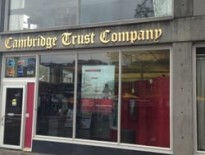Actelion Pharmaceuticals US Inc. has agreed to pay $360 million for allegedly paying kickbacks to medicare patients through a purportedly independent charitable foundation.
“Using data from a foundation that it knew it should not have, Actelion effectively set up a proprietary fund to cover the copays of just its own drugs,” United States Attorney Andrew E. Lelling said in a statement. “Such conduct not only violates the anti-kickback statute, it also undermines the Medicare program’s co-pay structure, which Congress created as a safeguard against inflated drug prices. During the period covered by today’s settlement, Actelion raised the price of its main PAH drug, Tracleer, by nearly 30 times the rate of overall inflation in the United States.”
When a Medicare beneficiary obtains a prescription drug covered by Medicare Part B or Part D, the beneficiary may be required to make a partial payment, which may take the form of a copayment, coinsurance or deductible.
These copay obligations may be substantial for expensive medications. Congress included co-pay requirements in these programs, in part, to encourage market forces to serve as a check on health care costs, including the prices that pharmaceutical manufacturers can demand for their drugs.
The government alleged that Actelion, a seller of hypertension drugs called PAH drugs, used data from a foundation as a conduit to pay the copay obligations of thousands of medicare patients taking Actelion’s PAH drugs.
By doing so, the government alleged, Actelion was able to induce patients to purchase its drugs when the prices Actelion had set for those drugs otherwise could have posed a barrier to purchases.
The anti-kickback statute prohibits pharmaceutical companies from offering or paying, directly or indirectly, any remuneration – which includes money or any other thing of value – to induce medicare patients to purchase the companies’ drugs.
The government also alleged that Actelion had a policy of not permitting Medicare patients to participate in its free drug program, which was open to other financially needy patients, even if those Medicare patients could not afford their copays for Actelion’s drugs.
Instead, to generate revenue from Medicare and induce purchases of its drugs, the government alleged that Actelion referred such Medicare patients to the foundation, which allowed the patients’ copays to be paid and resulted in claims to medicare for the remaining cost.
Johnson & Johnson acquired Actelion in June 2017. Johnson & Johnson was not involved, directly or indirectly, in the alleged conduct and the allegations above do not relate in any way to Johnson & Johnson.




 |
| 

